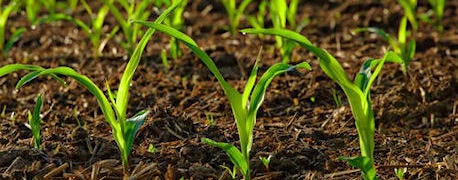March 3, 2015

The Soil Science Society of America is bringing precision ag awareness to soil importance discussions for the 2015 "Year of Soil."
Related: FAO's Year of Soils to Celebrate 'Earth's Silent Ally'
March's SSSA theme is "Soils Support Agriculture." In one of its Soils Matter blog posts this month, soil experts explain what precision agriculture is, and why farmers use it.
With precision agriculture, farmers and soils work better, not harder, the group says, suggesting better name for precision ag might be "site-specific ag." The group sites better management which reduces misapplication of products and increases crop and farm efficiency.

Farmers and soils work smarter, not harder, with precision ag, Soil Science Society of America says
"Farmers use research about weather patterns, soil temperature and humidity, growth, and other factors" to steward land, the group says. "They rotate crops to improve diversity, and monitor irrigation rates so that salts do not accumulate. They also use precision agriculture practices to apply nutrients, water, seed, and other agricultural inputs to grow more crops in a wide range of soil environments."
SSSA notes precision ag can help farmers know how much and when to apply these inputs. Farmers use global positioning systems and GPS-computer guided tractors and harvesters. Other geo-referenced site-specific practices may include:
• electromagnetic soil mapping
• soil sample collection
• crop yield data collection
• aerial imagery
• crop or soil color index maps
• soil types
• soil characteristics
• drainage level
• potential yields
One example of a precision agriculture practice is to evaluate the natural soil variability of a field. If the soil in one area holds water better, crops can be planted more densely and irrigation can be sparing. Or, if the plot is used for grazing, more cattle can graze than a similar area of poorer quality soil, the group writes.
Related: See Soil Changes, Believe in Soil Health
"By studying these factors and using precision agriculture, farmers are able to produce more food at a fraction of the cost. Farmers also conserve soil for sustainable food production. Precision ag results in a stable food supply, which results in a strong community," SSSA said.
As part of their celebration of IYS, SSSA is developing a series of twelve two-minute educational videos. March's Soils Support Agriculture video can be viewed online.
You May Also Like




